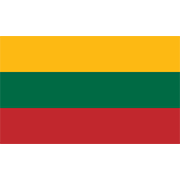Fiscal subject related
The head of FM 1 has issued Order No. VA-75, amending the rules for the use of My VMI, originally approved in Order No. VA-91 on October 3, 2012. VMI represents a special electronic service by the State Tax Inspectorate. These amendments, now referred to as the Rules for the Use of My VMI 2, introduce significant changes aimed at improving the service for users. These updates reflect the latest legal requirements and technological advancements, ensuring greater safety, transparency, and convenience for My VMI users.
Changes are reflected on:
- Expanded definitions: the concepts defining the recipients of the electronic service and their representatives have been broadened and detailed. New concepts have also been introduced to clarify the scope of the Rules.
- Enhanced authentication: detailed descriptions of the authentication tools and procedures for connecting to My VMI, including email address confirmation, have been provided. These measures ensure greater security and identity verification for users.
- Guidelines for representatives: More comprehensive guidelines are now available on how representatives of My VMI can grant, change, or revoke rights to use electronic services. Information on the validity period of these rights and related termination procedures is also included.
- Service Ordering and Notifications: The process for My VMI representatives to order and receive electronic services has been clarified. Additionally, there are detailed instructions on handling information and documents related to My VMI, as well as notification settings for service recipients.
- Cookie usage transparency: clear instructions regarding the use of essential and analytical cookies have been introduced, allowing users to accept or refuse their use. This change aims to enhance transparency and protect user privacy.
Other news from Lithuania
Lithuania’s 2026 Budget Raises Reduced VAT to 12% and Reforms Multiple Sector Rates from January 1, 2026
 Lithuania
Author: Nikolina Basić
Lithuania
Author: Nikolina Basić
Lithuania’s Parliament has adopted the 2026 Budget, introducing VAT rate changes effective 1 January 2026, including replacing the 9% reduced rate with a 12% rate for sectors such as accommodation, transport, culture, and catering, while the standard rate remains at 21%. At the same time, VAT on district heating, hot water, and firewood will increase to 21%, while VAT on medicines, books, and non... Read more



Lithuania Tightens VAT & Fiscalization Oversight: Stricter Inspections, Cash Register Rules, and Steeper Penalties Announced
 Lithuania
Author: Nikolina Basić
Lithuania
Author: Nikolina Basić
Lithuanian tax inspections for VAT and fiscalization can take place either at the tax administrator’s office or directly at the taxpayer’s premises, with prior notification required. During an inspection, officials may review all relevant accounting records, systems, and materials, while taxpayers must provide full access and necessary documentation. Read more
Subscribe to get access to the latest news, documents, webinars and educations.
Already subscriber? Login


Sweetened drinks tax starting January 2026 in Lithuania
 Lithuania
Author: Nikolina Basić
Lithuania
Author: Nikolina Basić
Lithuania will introduce a new excise tax on sweetened non-alcoholic beverages starting January 1, 2026, targeting drinks with added sugars or sweeteners while exempting those with only natural sugars. The measure, part of the 2026 tax reform, sets tiered rates up to €21 per hectolitre and is expected to slightly raise retail prices depending on sugar content and product type. The Lithuanian Parli... Read more



Lithuania updates VAT Law with new reduced rates and exemptions
 Lithuania
Author: Nikolina Basić
Lithuania
Author: Nikolina Basić
Lithuania has proposed amendments to its VAT law introducing a 12% reduced rate for accommodation, public transport, cultural visits, and household energy supplies. The draft also extends reduced VAT to printed and electronic books and educational publications, excluding those with mainly advertising, music, or video content Lithuania has amended its Value Added Tax (VAT) law to introduce new redu... Read more



New technical documentation in Lithuania
 Lithuania
Author: Ištvan Božoki
Lithuania
Author: Ištvan Božoki
The Lithuanian Tax Authority has released version 1.9 of its technical documentation, introducing clarifications to several web services, including updates to the description of “linkedDocumentNumber” and the error code CERTIFICATE_VALID_TOO_LONG. Changes also affect the validity descriptions of transport and security module certificates in the CSR file creation guide, with the full documentatio... Read more



Lithuania begins shift toward EU-compliant Structured E-Invoicing
 Lithuania
Author: Nikolina Basić
Lithuania
Author: Nikolina Basić
Lithuania plans to implement nationwide structured e-invoicing by 2028, using the EU standard EN 16931 and aligning with the 2030 VAT in the Digital Age reforms. The system will likely adopt a 5-corner model with real-time reporting to the SABIS platform, building on its existing eSąskaita B2G infrastructure and offering free API-based tools for businesses. Lithuania has set its sights on a full-s... Read more



New document was uploaded: EV-chargers from the Fiscalization Perspective in Lithuania
 Lithuania
Author: Nikolina Basić
Lithuania
Author: Nikolina Basić
The purpose of this document is to explain rules regarding the treatment of EV chargers for electric vehicles from a fiscalization perspective. We will explain whether EV chargers need to contain cash registers and other fiscal requirements or not, is it maybe part of the e-invoicing rules, or are they exempt from those obligations? Read more
Subscribe to get access to the latest news, documents, webinars and educations.
Already subscriber? Login

